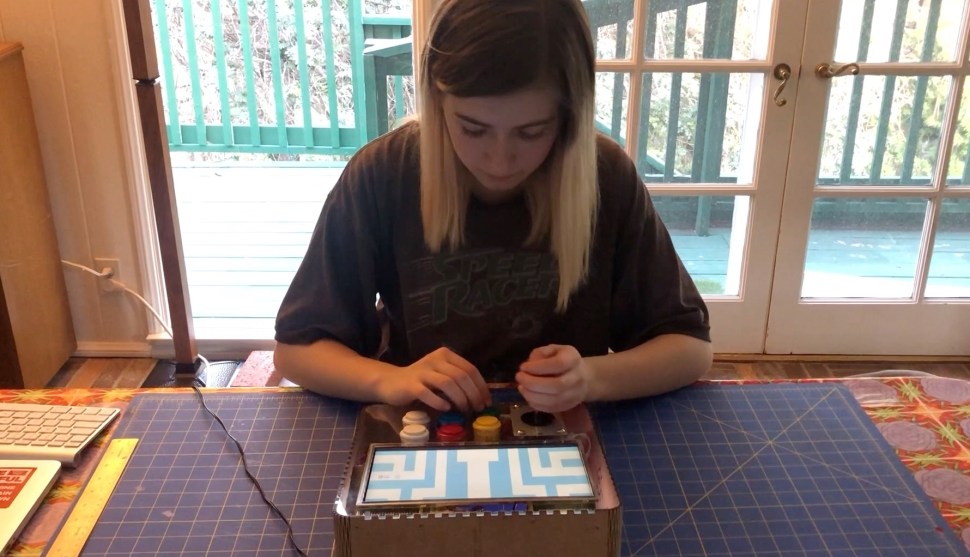I made this cool desktop video game arcade machine with the help of a Glowforge laser cutter
This post was sponsored by Glowforge. Click here to get $100 off a Glowforge Basic, $250 off a Glowforge Plus, or $500 off a Glowforge Pro.

This is the second of two videos on how to make a Raspberry Pi based tabletop retro-video game arcade machine. (Here's the first.)

Once we bought the components and made sure everything worked it was time to design and print the cabinet.

Any graphics program will work with the Glowforge. You can even use a hand-drawn image because the Glowforge has a built-in camera that scans your drawings and converts them to cutting, scoring, and engraving lines.
Cutting

Once we had a design we liked, we uploaded it to the Glowforge app. It's as easy as dragging and dropping the image file onto the page, then placing the design on the photo of the material You can move the images around the material in order to fit multiple components onto the same piece of stock.


The first prototype we made had sharp corners, and they poked into our palms when we used the buttons and joystick. So for our second design, we used a living hinge, which is a cool way to bend wood. With these kinds of hinges, you can make beautiful and functional things.
Customization

The Glowforge not only cuts material, it also engraves designs - even photos - in high resolution. We engraved one of our favorite characters -- Q*Bert, the famous cussing cube-hopper. And my daughter and I took a cue from the original Macintosh team and engraved our names on the inside of the cabinet.
Assembly

It was really fun to assemble the project. The cabinet sides and mounting holes were cut so accurately, it felt like we were putting together a kit.

We used a USB joystick and button kit, which costs about $10 online and has an interface card that plugs directly into the Raspberry Pi.

We also bought a 10.1-inch HDMI display online for about $55. It's USB powered, so you can plug it into one of the Raspberry Pi's USB ports.

Once everything was assembled, mounted, and connected, we powered it on. In just a few minutes, we were playing our favorite retro video games.

Now that we have the designs, we can make new game arcades in just about an hour. They'll make great birthday gifts for my retro-game playing nieces and nephews.
Here are the SVG files if you'd like to make one of your own. Here's a link to the RetroPie project, which has the emulators you need to play retro videogames.
Visit glowforge.com/boingboing to receive up to $500 off the purchase price of a Glowforge